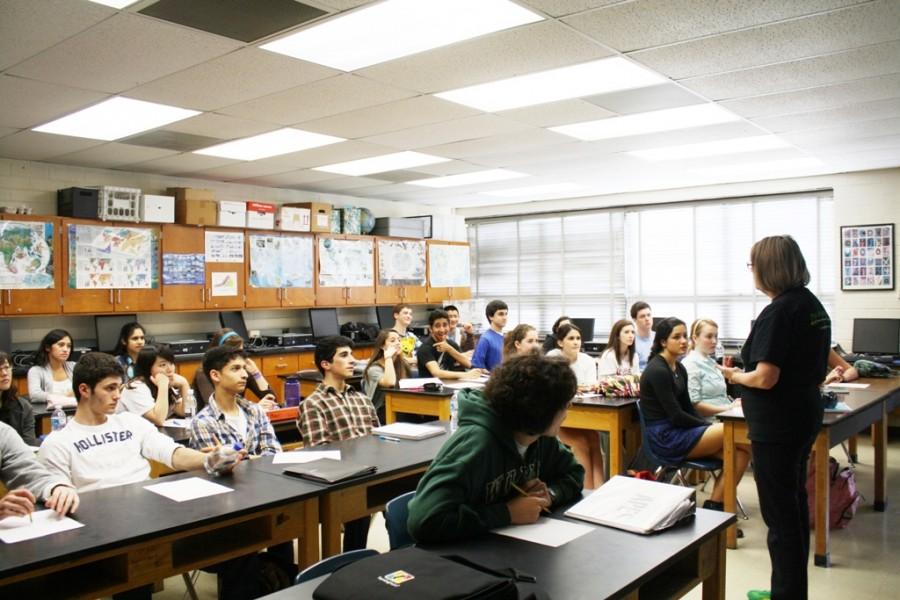If everyone on Earth had my lifestyle, we would need 6.2 planet Earths to provide enough resources for the human population. But we only have one. I was shocked when I discovered the huge impact that I have on our planet—and it’s just one of the things that I’ve learned in my AP Environmental Science (APES) class. APES covers humans’ relationships with our planet, an issue everyone needs to understand, which is why Environmental Science should be a mandatory class for all high school students.
Before I took APES, I didn’t really understand the implications of things like climate change, pollution, population growth and deforestation—mostly results of human actions. But now I realize how dire the circumstances really are. We are destroying our planet, and must act quickly in order to reverse the pattern. The problem is, most people don’t understand what’s really happening—nobody realizes that we all need to make a change. But if all high schoolers took Environmental Science, we could begin to take the necessary steps to solve the problems that we have created.
Senior Lauren Kimble, who took APES her junior year, agrees. “APES would be a good mandatory class because I think that, generally, people are ignorant of some of the most pressing environmental problems,” she said. “If more people were aware, we could bring about change.”
However, I realize that, atLangley, this particular science is only available as an advanced placement class. Of course no student should be forced into enrolling in an AP that they feel unprepared for—so the class should be offered at a non-AP level as well. The important thing is that students are still educated about current environmental concerns and their solutions.
Additionally, Environmental Science is a truly interdisciplinary course. It encompasses aspects of biology, chemistry and geosystems, not to mention aspects of governmental policy and economics. According to APES teacher Ms. Deanna Den Hartog, “Environmental Science can pull many classes together and provide a real-world application,” another important positive that the class offers.
Senior Murat Elsekkaki also notes that this class is especially important for American students since “our country is one of the largest contributors to global environmental problems.” If our citizens realize the issues, perhaps we will finally urge our policy makers to act and we can solve the problems that we have inflicted on the environment.
If Environmental Science was a mandatory class, we could all learn something about ourselves and our relationship with the Earth—and just how many Earths we would need if everyone had the lifestyle that we do.


